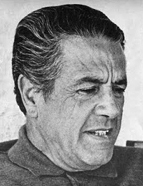

The peasantry had been Portuguese ethnography's object of study since the last decades of the 19th century. While for members of the educated urban classes, who observed others from their own vantage point, the peasantry was regarded as a group characterised by archaism and distance from literate culture, for others, touched by the nationalism born out of Romanticism, it was seen as the faithful guardian of the most authentic national traditions, due to its lack of exposure to foreign influences. Ethnography and ethnology, like philology, history, archaeology, and geography—sometimes cultivated by the same individual, as in the case of Leite de Vasconcelos—were all animated by nationalist sentiment and had developed in the last decades of the 19th century. Jorge Dias was an heir to this tradition, which included figures such as Adolfo Coelho, Rocha Peixoto, Consiglieri Pedroso, Teófilo Braga, and José Leite de Vasconcelos (J. Leal, Etnografias Portuguesas ...[Portuguese Ethnographies ...], 2000, pp. 27-61). With a background in the humanities, he did not practise physical anthropology, a discipline introduced into university teaching in the 19th century.
The time in which Jorge Dias embarked on his academic career was far removed from the golden days of the early Portuguese ethnologists. The e thnography produced in Portugal, with little echo in university teaching, had been transformed into a field geared towards regional peculiarities, stripped of the cosmopolitanism and systematic ambitions of the past.
Jorge Dias’ education was eclectic, a combination of the legacy of Portuguese ethnology with other contributions acquired throughout his career. Among them, German anthropology, with its historicist and geographic traditions, played a prominent role from the beginning to the end of his work. The greatest influence he acknowledged in this regard was that of Thurnwald, a moderate diffusionist and functionalist who recognised the importance of history. Furthermore, this anthropologist, who was familiar with the North American and British anthropology of the 1920s and 1930s, may have been the source of Dias’ initial knowledge of both. Other disciplines such as human geography, philology, archaeology, and the "psychology of peoples" were also part of his learning. His education was crucially enriched by contact with North American cultural anthropology, which, through the eminent figure of Franz Boas, maintained connections with the German tradition.
